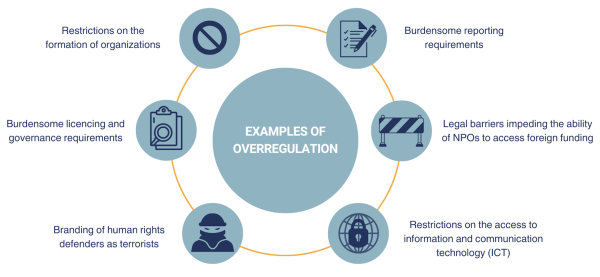The current prevailing tendency by countries' is to over-regulate the NPO sector and have a one-size-fits-all instead of a risk-based approach. This is not effective either for the government in terms of its AML/CFT mandate or for the NPOs in terms of their day-to-day operations.
Nonprofit organisations (NPOs) around the world have faced operational and legal restrictions. This has had a negative effect on NPOs’ abilities to implement activities and protect the needs of beneficiaries, especially in crisis or conflict areas.
Some examples of over-regulation include (more here):

Consequences of these restrictions:

Until recently, these restrictions were justified by citing the requirements of the Financial Action Task Force (FATF) regime and, specifically, of Recommendation 8. Revision of the Best Practices Paper on the implementation of Recommendation 8 in 2023, which now also includes bad practices gives better guidance to countries.
The following civil society organizations monitor and report on the state of civil society regulation:
ICNL:
International Center for Not-for-Profit Law’s Civic Freedom Monitor has up-to-date country-specific information on legal issues affecting civil society and civic freedoms, including freedoms of association, expression, and peaceful assembly.




